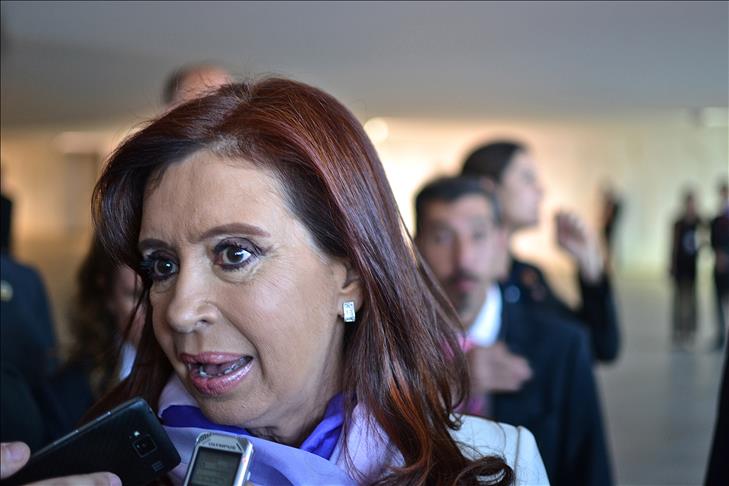
BUENOS AIRES, Argentina
Argentina stands on the brink of its second default in 13 years on Wednesday.
There remains but a few hours for Cristina Kirchner’s government to negotiate a deal with the two hedge funds –NML, subsidiary of Elliott hedge fund, and Aurelius – that demand the repayment in full on bonds they are holding from Argentina’s 2001 default.
The government sent a team of officials to New York for fresh talks on Tuesday with a U.S. mediator on the legal case that could spark the default.
U.S. federal judge Thomas Griesa had previously ordered the country to pay back the $1.5 billion to the hedge funds – the plaintiffs - that had not agreed to accept a lower amount than they were owed, following the 2001 default.
Argentina lost its appeals against the ruling, meaning that it must pay back the hedge funds at the same as it makes its next payment, on Wednesday, to the 92.4 percent of creditors who accepted 30 cents on the dollar in the restructuring of the defaulted bonds in 2005 and 2010.
Argentina argues that such a payment would violate a clause, called rights upon future offers, which entitles bondholders from the 2005 and 2010 restructurings to claim the same treatment as those who won the lawsuit.
As the restructured bondholders accepted 30 cents on the dollar and the plaintiffs are due to collect 100 cents on the dollar, the former could demand the difference.
Economists estimate that this could increase the national debt by $300 billion.
“Argentina has made its decision to not violate this clause,” said Nicolas Dujovne, an economist at his own consulting firm, Nicolas Dujovne & Asociados, in Buenos Aires. “That leaves a default as the only apparent option for Argentina.”
The plaintiff creditors could ask Griesa to suspend the repayment order with a stay of execution until January 1, 2015 as the rights upon future offers clause expires December 31, 2014.
“It’s unlikely that the creditors will ask for a stay if they perceive that Argentina isn’t really willing to comply with the judgment to pay them,” Dujovne said.
Argentine President Cristina Kirchner appeared to shake off the concerns of a default in a speech in Caracas during a meeting of South American nations.
“They want to scare us with the 10 plagues of Egypt,” she said Tuesday. “But we already lived the 10 plagues of Egypt in 2001.”
After the 2001 default, the economy contracted by nearly 11 percent and pushed the unemployment rate to 25 percent and poverty to 50 percent.
Economists don’t expect such a drastic fallout from this forthcoming default, since, contrary to 2001, it is expected, but, nevertheless, the country is bound to suffer from a recession.
Dujovne said he expects another default would bring further depreciation of the peso currency as well as rapid inflation, that this would prompt a decline in consumer spending and tax collections.
“The government will face a very hard time in trying to keep the recession from worsening with a new default,” he said.
Dante Sica, an economist at the Abeceb.com consulting firm in Buenos Aires, said on Rede TV that while the recession won’t be as deep or as long as in 2001, it will hurt.
“There will be a lot of instability, a lower level of economic activity and less employment,” he said.


